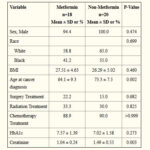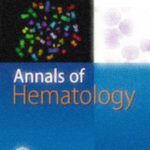Tag Archives:lymphoma
二甲双胍改善胰腺癌和lymphoma outcomes in DM2 patients
Routine imaging in patients with follicular lymphoma in remission
Can the heart get cancer? Quite rare, but yes
What it takes to survive a transplant
The importance of clinical endpoints in lymphoma
Lymphomas, or neoplasms of the lymphoid system, include a broad array of cancers. The least aggressive, often called indolent, lymphomas (the most frequent of which is follicular lymphoma, FL) are characterized by their incurability. At the same
MYD88 mutation is associated with an unfavorable outcome of Primary Diffuse Large B-cell Lymphoma
Defining optimal therapy for patients with aggressive B-cell lymphoma and central nervous system involvement
CD164 helps physicians to diagnose and treat cancer in Sézary Syndrome
Dogs with lymphoma have better therapeutic responses and longer lifespans if they revealed lower white blood cell count after chemotherapy
Chemotherapy is effective against rapidly growing neoplasm. Chemotherapeutic drugs also damage other rapidly dividing cells, such as bone marrow stem cells. Because white blood cells have the shortest life spans in the hemocyte, bone marrow suppression commonly













